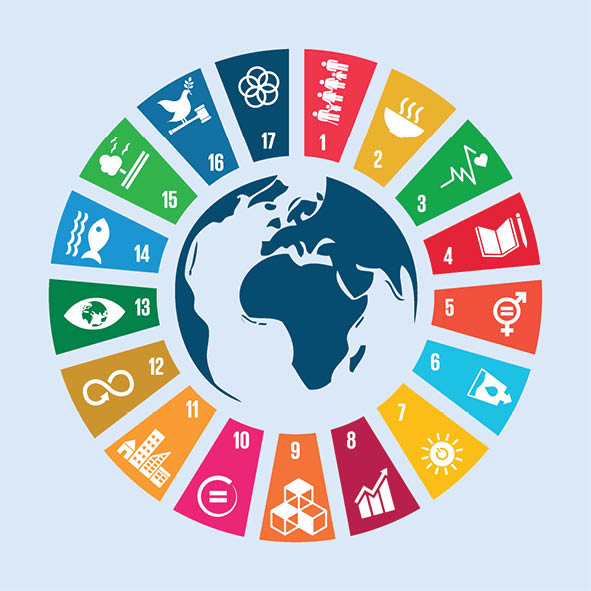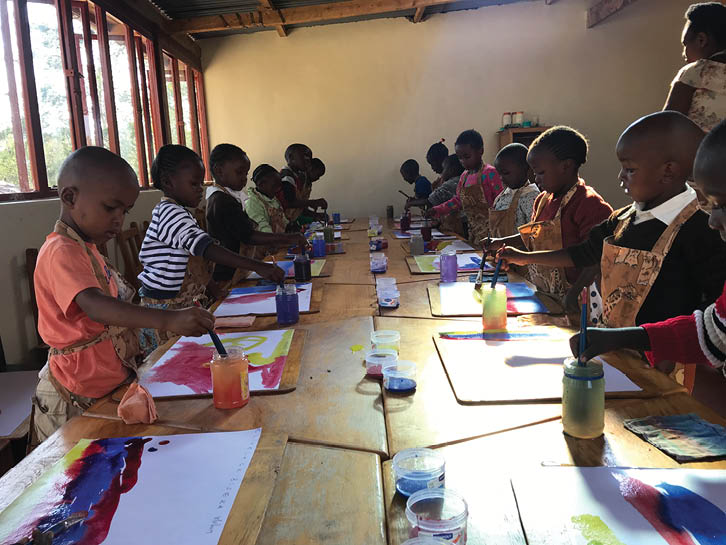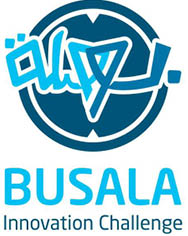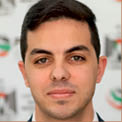In his famous book The Great Escape: Health, Wealth, and the Origins of Inequality,*1 the 2015 Nobel Prize–winning economist Angus Deaton warned of rising social and economic inequalities between and within countries. Specifically, he argued that although the twenty-first century seems a better era to live in – thanks to remarkable improvements in the quality of life due to increases in incomes and advances in technological innovation – millions of people across the globe have failed to escape from the cycle of poverty and underdevelopment. Importantly, he called for more innovative ways to address global development challenges and urged governments to intensify their coordinated efforts to overcome collective action failures and ensure that the most marginalized of nations can make their escape from destitution.
The world is facing severe development challenges that require innovative solutions and greater investment in building resilience and cooperation mechanisms.
Significantly, 2015 is not only the year in which professor Deaton was awarded the Nobel Prize in economic sciences. During that year, we also witnessed the leaders of more than 190 countries coming together to launch the era of the Sustainable Development Goals (SDGs) – a set of 17 globally adopted universal goals that aim to achieve a sustainable, inclusive, and fairer world by the year 2030. The SDGs include 169 targets that present an ambitious roadmap to be followed by governments in order to address the severe and unprecedented challenges of our time, such as climate change, eradication of poverty, access to clean water, energy security, gender equality, and the need for effective governance systems. In addition, the goals not only provide an opportunity for all countries – large and small, developing and developed alike – to cooperate and work together for the common good, they also demand the involvement of key stakeholders and partners that represent the private sector, civil society, academia, and nongovernmental organizations.

Unfortunately, the uncertainty and chaos created by the rapid spread of the COVID-19 pandemic in 2020 have exacerbated existing challenges and make the achievement of the SDGs by 2030 seem like an elusive and unrealistic target. In fact, the World Bank Group estimates that the lockdown measures imposed by governments as a response to the virus outbreak will shrink the global economy by 5.2 percent and push more than 100 million people into extreme poverty, thus reversing decades of progress and leading to the worst economic crisis since the great depression of the 1930s. Furthermore, it is expected that marginalized communities that live in fragile and conflict settings will be the most affected by the negative repercussions of any economic or humanitarian crisis.*2
Turning global challenges into opportunities for innovation, solidarity, and impact (facts and figures):
Source: United Nations Development Programme (UNDP) and World Bank Group (WBG).
· 2.6 billion people across the developing world lack access to constant and reliable electricity.
· 2.3 billion people worldwide lack access to basic sanitation.
· 4+ billion people worldwide do not have access to the internet (90 percent of them live in developing countries).
· At least 400 million people have no basic health care.
· Weak infrastructure in developing countries reduces business productivity by around 40 percent.
· Around 1.7 billion adults around the world are unbanked and do not have access to basic financial services.*4
· The number of people employed by the renewable energy industry could reach 20 million by 2030.
· 4.2 billion people lived in cities in 2018, yet this figure is expected to reach 6.5 billion by 2050.
According to the World Bank, two-thirds of the world’s extremely poor will live in countries affected by fragility, conflict, and violence*3However, it is precisely in these vulnerable settings where investment in resilience and innovation capacities are most needed. In other words, enhancing the resilience of these communities to economic and humanitarian shocks requires greater international cooperation and the introduction of innovative technologies that can raise productivity, improve service delivery, and unlock many of the untapped opportunities across the developing world.
A glimpse of hope! Examples of recent successful Palestinian innovation and start-ups:
· Young Explorer*5 is an innovative mobile app, based on artificial intelligence (AI), which aims to generate a customized rehabilitation plan that fits the needs of children with disabilities and learning difficulties. The AI-based start-up was chosen among winners of the Islamic Development Bank’s Transform Fund 2019.
· Receet*6 is a mobile app platform that improves shopping experiences through digital, environmentally friendly receipts. The innovative financial technology start-up was selected as one of the Dubai International Financial Center (DIFC) Fintech Hive’s 2020 accelerator cohorts.
· WeDeliver*7 is the first crowdsourced “on-the-way” technology-driven business-to-business (B2B) start-up that aims to disrupt the logistics and last-mile delivery industry across the MENA region. WeDeliver won first place in Startup Istanbul 2019 and successfully expanded its services into the Saudi Arabian market.
· TollabCov*8 started as an internship start-up project at Birzeit University’s B-Hub and has managed to connect 450 current students at Birzeit with internship opportunities. TollabCo also represented Palestine and the Middle East in the final stage of the 2019 Hult Prize Challenge, the world’s largest social entrepreneurship competition for students.
As history has shown, sometimes it is in the middle of difficulties when opportunities can be realized. In other words, the ability to face complex situations and turn challenges into game-changing opportunities is what could be identified as resilience – and yes, the Palestinian people have been teaching the world all about resilience, steadfastness, and perseverance. Frankly, in the world of disruptive innovation and entrepreneurship, only the most resilient can mitigate risks, overcome challenges, and emerge stronger from unexpected shocks and crises.

Hence, there is nothing that prevents resilient Palestinian entrepreneurs and innovators from pursuing their dreams and delivering impact to their country as well as to other marginalized communities across the developing world. In fact, Palestinian entrepreneurs have not only been able to achieve remarkable success stories that deserved recognition from regional and international organizations, they have also built impactful and scalable start-ups that provide innovative tech-based solutions to some of the world’s most complex challenges.

It is clear that Palestinian entrepreneurs do not lack the mentality of resilience needed for success in the rapidly changing field of innovation. Rather, they lack the support systems and public-private partnerships that would enable them to expand their offerings into new markets and apply their innovative solutions to existing challenges across the developing world. One of the recent initiatives that aims to enhance the role of Palestinian innovation in addressing global development challenges is Busala Innovation Challenge,*9 a multi-stakeholder platform for global innovation, launched in partnership between the Palestinian International Cooperation Agency (PICA) and the Higher Council for Innovation and Excellence (HCIE). Strictly speaking, this ambitious initiative aims to create impact at home and abroad and add value to the Palestinian entrepreneurial ecosystem by providing a platform for Palestinian innovators and entrepreneurs to apply, test, and scale their innovative solutions while helping to address some of the world’s most complex development challenges. Importantly, the ultimate target of this initiative is to become a bridge that connects Palestinian innovation with the development needs of marginalized communities across the developing world, thus contributing to the realization of the SDGs and the 2030 global development agenda.
Although some might argue that Palestine is not yet prepared to enter the global innovation scene, a mere visit to one of the many co-working spaces and innovation hubs scattered across the Palestinian cities in the West Bank and Gaza could convince even the fiercest of skeptics that Palestinian entrepreneurs are not only determined to create a better future for themselves, they also strive to turn global development challenges into promising opportunities for innovation, resilience, and impact. A well-known African proverb states, “If you think you are too small to make a difference, you haven’t spent a night with a mosquito.” In other words, even though Palestine is a small country with limited resources and a traumatic history of struggle for justice, it is able to punch above its weight, and Palestinians have sufficient determination and talent to help them make the world a more resilient and much better place to live in.

*1 For more information, please visit Goodreads, The Great Escape, available at https://www.goodreads.com/book/show/17942017-the-great-escape.
*2 “COVID-19 and the SDGs: How the ‘roadmap for humanity’ could be changed by a pandemic,” UNDP Development Programme, available at https://www.undp.org/content/undp/en/home/sustainable-development-goals.html.
*3 “Fragility, Conflict & Violence,” the World Bank, available at https://www.worldbank.org/en/topic/fragilityconflictviolence/overview.
*4 “Financial Inclusion,” the World Bank, available at https://www.worldbank.org/en/topic/financialinclusion/overview.
*5 For more information, see “Ayah Dajani, Young Explorer,” ENGAGE, available at https://www.isdb-engage.org/en/custom/transformer/view/24566.
*6 For more information, see “Modernize Receipts,” Receet, available at https://getreceet.com/.
*7 For more information, see WeDeliver–Home, Facebook, at https://www.facebook.com/WeDeliverTech/.
*8 “Representing Middle East in UN, Birzeit University team finalists in 2019 Hult Prize,” Birzeit University, September 23, 2019, available at https://www.birzeit.edu/en/news/representing-middle-east-un-birzeit-university-team-finalists-2019-hult-prize.
*9 “Busala Innovation Challenge ‘We innovate, we contribute, we impact,’” PICA, available at http://pica.pna.ps/busala-innovation-challenge-we-innovate-we-contribute-we-impact/.


